Posts Tagged ‘National Reconciliation’ (41 found)
Letpadaung Crisis Takes a Turn for the Worse
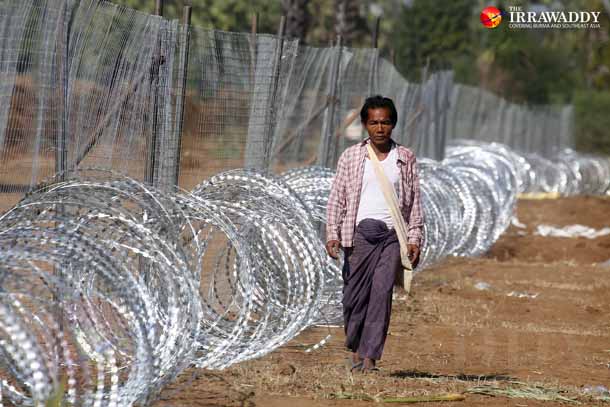 As 2014 ended seeing Burma’s reforms backsliding and the peace process stalling, Burma welcomed 2015 with many unresolved issues continuing to face people across the country.
As 2014 ended seeing Burma’s reforms backsliding and the peace process stalling, Burma welcomed 2015 with many unresolved issues continuing to face people across the country.
The ongoing dispute between local villagers and the Burma Government and Wanbao, a Chinese mining company, over land grabs and environmental damage continues to rumble on as police shot dead Daw Khin Win as she was demonstrating against the controversial Letpadaung mining project in Sagaing Region. Meanwhile, the police continue to arrest and detain activists who speak out against such violence on politically motivated charges, underlining the dire need for legal and judicial reform and the complete lack of the rule of law in Burma […]
• • •ႏုိင္ငံေတာ္သမၼတ ဦးသိန္းစိန္ထံသုိ႔ အိတ္ဖြင့္ေပးစာ- Open Letter to President Thein Sein
စီးပြားေရးဖြံ႕ၿဖိဳးတုိးတက္ၿပီး ျမန္မာႏုိင္ငံသား အားလံုးအတြက္ အဆင့္အတန္းျမင့္မားေသာ က်န္းမာေရး၊ ပညာေရးႏွင့္ ေကာင္း မြန္ေသာ အနာဂတ္မ်ားရရွိႏုိင္ရန္ ျပည္တြင္းၿငိမ္းခ်မ္းေရးသည္ မျဖစ္မေနလုိအပ္ခ်က္ တစ္ခုျဖစ္ေၾကာင္း ႏုိင္ငံေတာ္ သမၼတ ကုိယ္တုိင္ အခမ္းအနားမ်ားစြာတြင္ ထုတ္ေဖာ္ေျပာၾကား ခဲ့ဖူးပါသည္။ […]
• • •ဗုိလ္ခ်ဳပ္မွဴးႀကီး မင္းေအာင္လႈိင္၊ ကာကြယ္ေရးဦးစီးခ်ဳပ္ထံသုိ႔ အိတ္ဖြင့္ေပးစာ- Open Letter to Senior General Min Aung Hlaing
တပ္မေတာ္၏ စစ္ဆင္ေရးမ်ားႏွင့္ အသစ္တစ္ဖန္ျဖစ္ပြားလ်က္ရွိေသာ ျပင္းထန္သည့္ တုိက္ခုိက္မႈမ်ားအေပၚ အမ်ားျပည္သူ အေနျဖင့္ စုိးရိမ္ပူပန္မႈႀကီးစြာ ျဖစ္လ်က္ရွိၿပီး ထုိအေျခအေနမ်ားေၾကာင့္ အမ်ဳိးသားျပန္လည္ သင့္ျမတ္ေရးႏွင့္ တပ္မေတာ္၏ အကူအညီျဖင့္ ေဆာင္ရြက္လ်က္ရွိေသာ လက္ရွိအစုိးရ၏ ျပဳျပင္ေျပာင္းလဲ ေရးလုပ္ငန္းမ်ားအေပၚ ယံုၾကည္မႈကုိ မ်ားစြာ ပ်က္ျပားေစႏုိင္ပါသည္။ […]
• • •KNO’s Condemation Statement on Unprovoked Attacked at KIA’s Military Academy by the Burma Army
1. Kachin National Organization strongly condemn the Burma Army’s intentional, unprovoked, barbaric attack at the KIA’s military academy on 19th November 2014 at 12:36pm, which killed 23 cadets and seriously injured 20 others. […]
• • •ခ်င္းအမ်ိဳးသားညီလာခံ ဘံုသေဘာတူညီခ်က္မ်ား အေကာင္အထည္ေဖၚေရး ေပါင္းစပ္ညွိႏိႈင္းမႈေကာ္မတီ ထုတ္ျပန္ခ်က္
၁။ ၂၀၁၄ ခုႏွစ္ ႏို၀င္ဘာလ ၁၉ ရက္ေန႔တြင္ ေျမာက္ပိုင္းတိုင္းစစ္ဌာနခ်ဳပ္ ကြပ္ကဲမႈေအာက္ရွိ၊ ခမရ ၃၈၉ လက္ေအာက္ခံ တပ္ဖြဲ႔မ်ားက ကခ်င္လြတ္လပ္ေရးအဖြဲ႔၊ ဗိုလ္ေလာင္း သင္တန္းေက်ာင္းအား အေျမာက္ျဖင့္ ပစ္ခတ္တိုက္ခိုက္မႈေၾကာင့္ ခ်င္း အမ်ိဳးသားတပ္ဦးမွ အရာရွိေလာင္းႏွစ္ဦးအပါအ၀င္ အဖြဲ႕အစည္းအသီးသီးမွ အရာရွိေလာင္း ၂၃ ဦးက်ဆံုးခဲ့ၿပီး၊ ၂၀ ဦး ထိခိုက္ ဒါဏ္ရာ ရရွိခဲ့ေၾကာင္း သိရွိရသျဖင့္ မိမိတို႔အေနျဖင့္ အထူးတုန္လႈပ္ေျခာက္ျခားကာ ၀မ္းနည္းေၾကကြဲမိပါသည္။ […]
• • •‘If they had hope, they would speak’: The Ongoing Use of State-Sponsored Sexual Violence in Burma’s Ethnic Communities
In January 2014, the Women’s League of Burma (WLB) published a report which demonstrated the systematic use of rape by the Burma Army as a strategy to subjugate communities across the country. We documented over a hundred cases of sexual violence in the years since President Thein Sein took office – a number which we believe grossly underestimates the true scale of the problem. Drawing on evidence gathered by our member organisations across Burma, we argued that there are clear links between militarisation, investment and human rights abuses. We also proposed a number of steps to uproot the culture of impunity which surrounds sexual violence, and prevents survivors from obtaining justice. Whilst recent months have seen positive action taken in several areas, the pillars which provide impunity for perpetrators of human rights abuses remain in place. In January, we called for constitutional reform to place the military under civilian control; the establishment of effective judicial and non-judicial mechanisms to investigate human rights abuses, particularly those relating to sexual violence, and; greater participation of women in the peace process dialogue. […]
• • •KIA ဗိုလ္သင္တန္းေက်ာင္းသို႔ ပစ္ခတ္တိုက္ခိုက္မႈအေပၚ မကဒတ (ေက်ာင္းသားတပ္မေတာ္)၏ ထုတ္ျပန္ေၾကညာခ်က္
• • •Protection and Security Concerns in South East Burma/ Myanmar
The peace process in Burma/Myanmar1 is at a critical juncture from which it could evolve into a transformative national dialogue or splinter into a divisive charade. While hopes for substantive and inclusive discussion about structural injustice remain, ongoing militarisation and attacks by the national armed forces2 are undermining the confidence of ethnic stakeholders. This report seeks to highlight the protection and security concerns of conflict-affected communities. […]
• • •
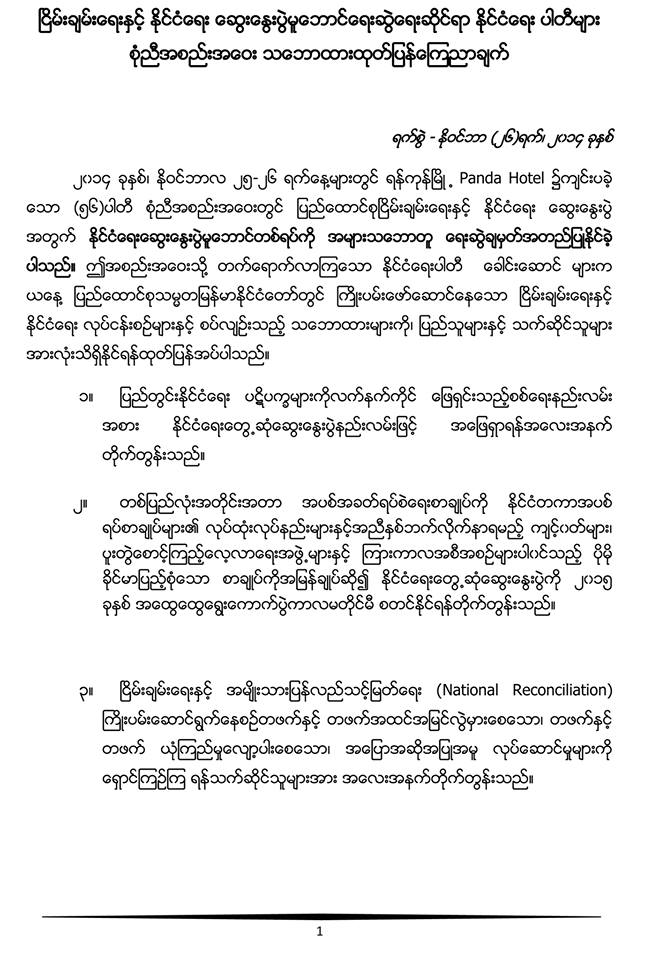

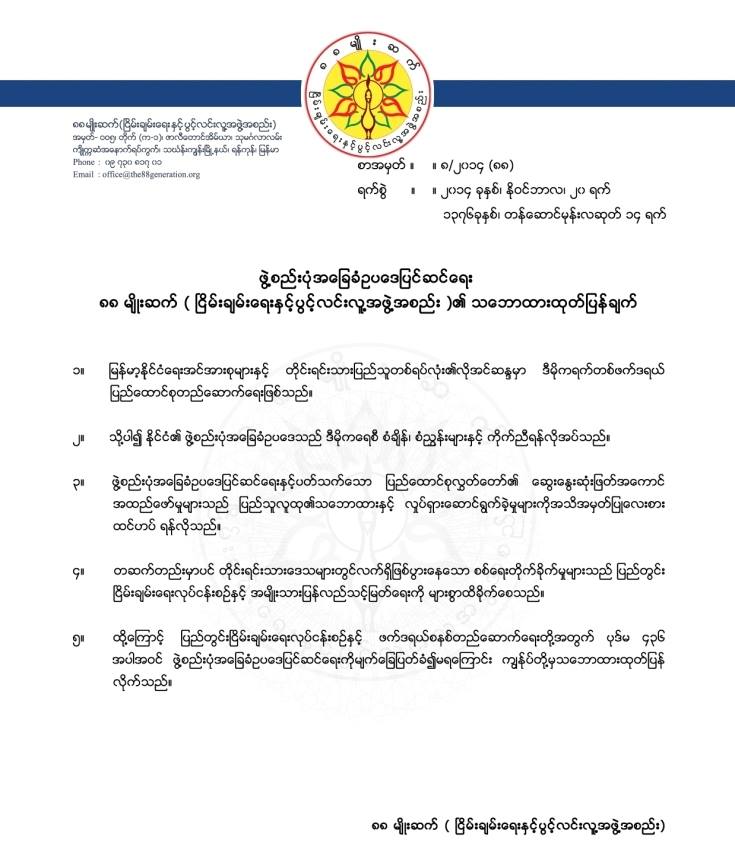
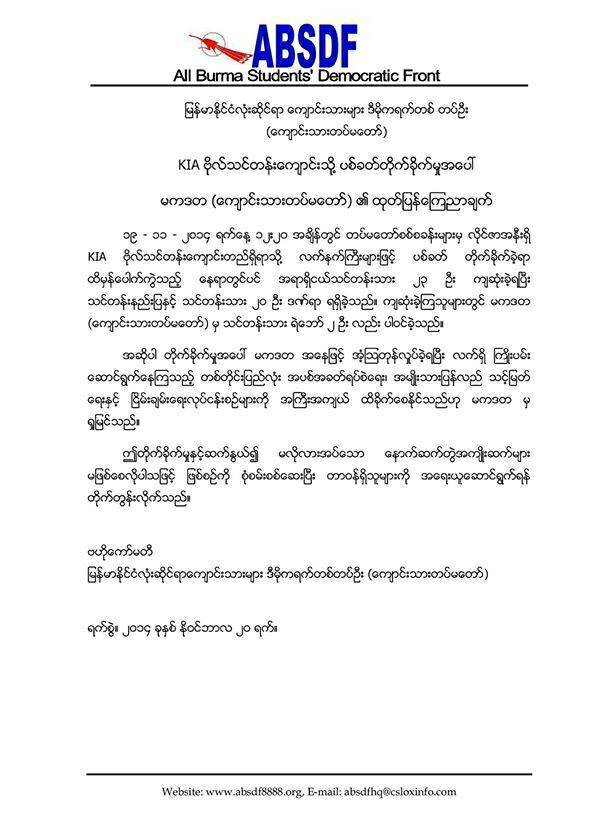
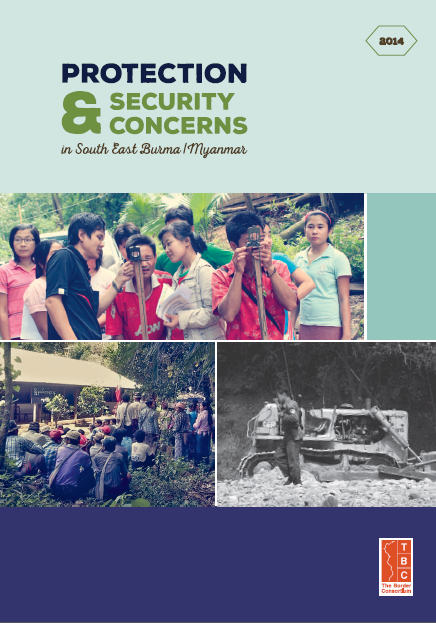








 All posts
All posts